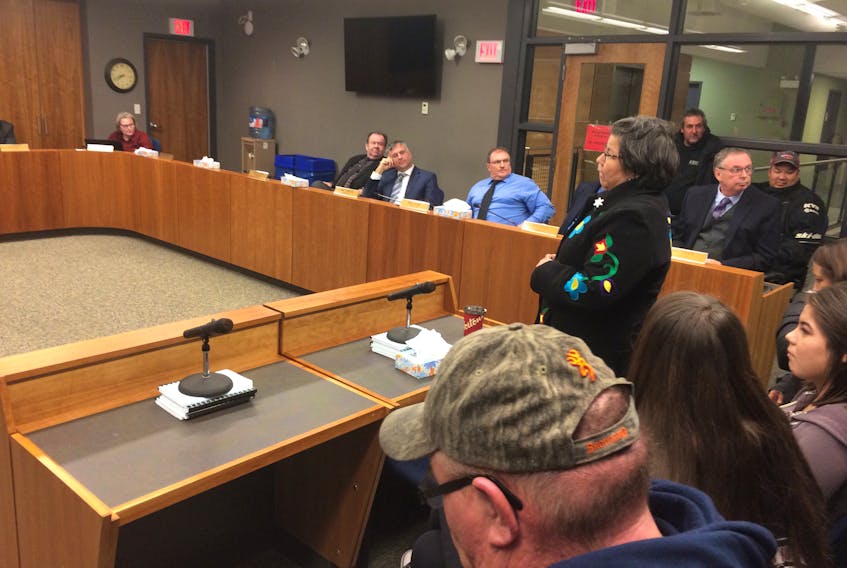PICTOU COUNTY, N.S. — Pictou Landing First Nation Chief Andrea Paul never had the opportunity to see Boat Harbour before a dam was put in place changing it from a tidal estuary into a treatment facility, but she’s heard the stories from elders in the community.
Boat Harbour was once a place the people trusted. When they were hungry, they found food there. When they were sick, they sought natural remedies at the shoreline and when people came and tried to take away the children to residential schools, that’s where they hid.
But trust was broken when in 1967 the tidal estuary was used to receive untreated pulp effluent. Paul has been told stories of how within days all the fish were killed.
“Nothing lives in Boat Harbour,” she said. “It’s so toxic, nothing lives there.”
One elder told her he saw fish gathered together in one spot gasping for air. He could pick them up with his hands.
“They destroyed an environment that our people survived off of,” she said.
Northern Pulp has stated in the past that the effluent currently flowing from the Boat Harbour Treatment Facility into the Boat Harbour Basin meets or exceeds all federal environmental standards, but Paul said her people do not trust the mill.
Speaking to Municipality of Pictou County Council on Monday, Jan. 7, Paul told of how people in her community are scared to use air exchangers for fear that the air pollution from Northern Pulp will contaminate the air their breathing. The result is that many homes are badly damaged by mould. Residents don’t grow gardens because they worry that the ground is also polluted. Distrust is so strong that many members of the band fear that even their own chief and council could be bribed, Paul said.
“The water we are surrounded by is all polluted. For many years my community has had to deal with this and try to find resolution to how do we clean this issue up?” she said.
The break in 2014 which leaked 47 million litres of pulp effluent onto Pictou Landing First Nation land was the tipping point. The people of Pictou Landing held a protest blockade until the government agreed to close the Boat Harbout Treatment Facility. In May 2015, the Boat Harbour Act was officially passed with support from all parties in the Nova Scotia Legislature.
But now Northern Pulp says it won’t be able to complete the construction of a new treatment facility in time and are asking for an extension. Paul asked the Municipality of Pictou County council for their support in passing a resolution to honour the Boat Harbour Act.
“From the 1960s until today we have incurred millions of dollars in infrastructure (damage),” she said. “You can’t even put an amount on what we have lost when we lost Boat Harbour. They paid us $60,000. That’s nothing compared to what we lost as a community.”
Paul knows that the past can’t be changed, but she hopes that on Jan. 31, 2020, elders from her community who saw Boat Harbour before 1967 will have the chance to see the end of its use as the recipient of effluent.
“We all lost something, but I don’t have the same amount of loss that my elders had,” she said.









